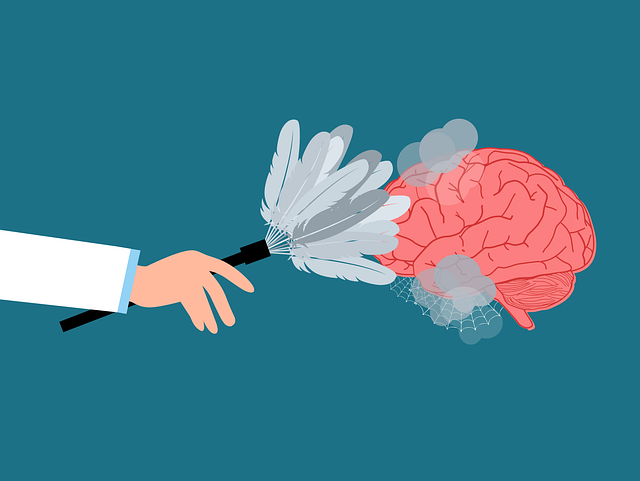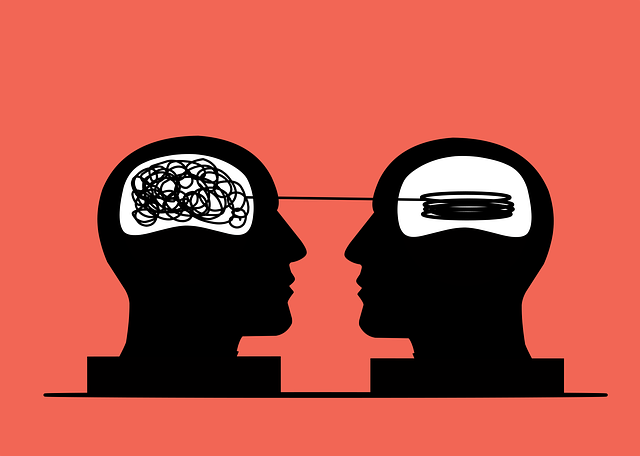In today's diverse healthcare landscape, cultural competency is vital for meeting the needs of all patients, especially Chicago's Englewood French-speaking community, which struggles to access quality mental health care due to language barriers and a shortage of French-speaking therapists. This article advocates for a comprehensive approach to cultural competency, including specific training in Englewood French-speaking therapy, to improve patient outcomes. Key strategies involve advanced communication techniques beyond translation, conflict resolution skills, public awareness campaigns, and holistic training programs that emphasize empathy, self-care, and policy advocacy. Strategic implementation, through collaborative efforts and regular evaluation, ensures effective cultural education within healthcare organizations, fostering inclusive and confident therapeutic environments.
Healthcare provider cultural competency training is more than a nice-to-have—it’s a necessity in modern practice. As diverse communities like Englewood’s French speaking population seek therapy, healthcare professionals must be equipped to bridge cultural gaps and deliver effective care. This article explores the importance of cultural competency, focusing on specific needs within Englewood’s French speaking community, effective training design, and implementation strategies for continuous improvement in cultural competent education.
- Understanding Cultural Competency in Healthcare: A Necessity in Modern Practice
- The Englewood French Speaking Community: Unmet Needs and Challenges
- Designing Effective Training Programs for Healthcare Providers
- Implementation Strategies and Continuous Improvement in Cultural Competency Education
Understanding Cultural Competency in Healthcare: A Necessity in Modern Practice

In today’s diverse healthcare landscape, cultural competency is no longer an option but a necessity. It involves understanding and respecting the cultural differences that shape how patients from various backgrounds access and perceive healthcare services. For instance, consider Englewood French-speaking communities—a demographic often overlooked yet in dire need of culturally sensitive care. Effective communication strategies are vital to bridging this gap. Healthcare providers must learn not just the language but also the nuances of cultural expressions, beliefs, and values to offer personalized treatment that fosters trust and improves patient outcomes.
The importance of cultural competency extends beyond basic communication. Conflict resolution techniques play a pivotal role in managing interactions with culturally diverse patients. By learning to navigate differences in values, customs, and healthcare preferences, providers can de-escalate tensions and create a safe space for open dialogue. Moreover, public awareness campaigns development can help educate both healthcare workers and the broader community about cultural competency, fostering an environment where everyone feels heard, respected, and valued.
The Englewood French Speaking Community: Unmet Needs and Challenges

The Englewood French-speaking community, located in Chicago, Illinois, presents unique challenges and unmet needs in healthcare provision. This predominantly immigrant neighborhood faces barriers to accessing quality mental health services due to cultural and linguistic differences. Many residents struggle with limited English proficiency, which hinders open communication with healthcare providers, often leading to misdiagnosis or undiagnosed conditions. The community’s diverse cultural backgrounds also demand tailored therapeutic approaches that respect individual beliefs and values.
The lack of French-speaking therapists in Englewood exacerbates the situation, making it difficult for residents to find culturally competent care. This gap in services impacts mental wellness coaching programs development as the community relies heavily on outreach and community health workers who may not have specialized training in addressing complex psychological issues. Building empathy and developing effective burnout prevention strategies for healthcare providers serving this population become paramount, requiring innovative approaches that bridge cultural divides and improve access to healthcare services.
Designing Effective Training Programs for Healthcare Providers

Effective training programs for healthcare providers must be meticulously designed to cater to diverse cultural backgrounds and patient needs. This involves incorporating interactive and engaging activities that simulate real-world clinical scenarios, allowing professionals to practice culturally sensitive communication skills. By fostering an environment where participants feel safe to ask questions and share experiences, these programs can break down barriers and promote empathy.
For instance, a focused module on Englewood French-speaking therapy could include role-playing exercises where healthcare providers navigate conversations with patients from different linguistic and cultural origins. Encouraging self-care practices and positive thinking is also integral to these training sessions, as mental health policy analysis and advocacy are key components of providing holistic care that respects and values every patient’s unique cultural identity.
Implementation Strategies and Continuous Improvement in Cultural Competency Education

Effective implementation strategies are pivotal for successful cultural competency training within healthcare organizations, especially those with diverse patient populations like Englewood French-speaking therapy clients. One approach involves integrating cultural education into existing training programs, ensuring that it becomes an integral part of the learning experience rather than a stand-alone module. This can be achieved through collaborative efforts between clinical and educational teams, who can jointly design and deliver content tailored to specific cultural needs.
Regular evaluation and continuous improvement are key to refining these initiatives. Feedback mechanisms, such as post-training assessments and focus groups, allow participants to voice their experiences and identify areas for enhancement. By incorporating this feedback, training programs can evolve to better address the unique challenges faced by healthcare providers in delivering culturally sensitive mental healthcare, thereby boosting confidence and anxiety relief among both professionals and patients, ultimately fostering a more inclusive and effective therapeutic environment.
Cultural competency training is no longer a nice-to-have but an essential component of modern healthcare. As communities become increasingly diverse, such as the Englewood French-speaking population highlighted in this article, providers must be equipped to offer culturally sensitive care. Effective training programs, tailored to address specific community needs like those in Englewood French Speaking Therapy, can significantly improve patient outcomes and satisfaction. By implementing robust education strategies and fostering a culture of continuous improvement, healthcare systems can ensure they provide equitable care for all, regardless of background or language.














